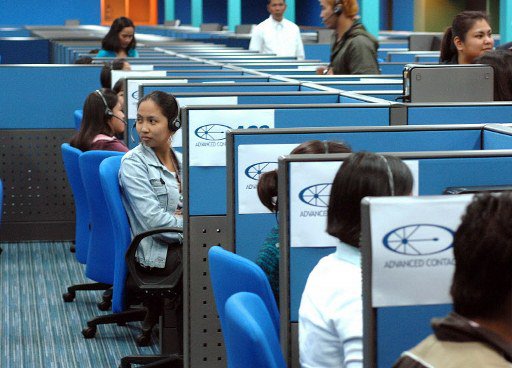BPO workers in ecozones must work on-site – DOJ
MANILA, Philippines — Business process outsourcing firms (BPOs) within special economic zones that adopt work-from-home (WFH) arrangements for their employees are no longer entitled to tax incentives, according to the Department of Justice (DOJ).
In a legal opinion dated Jan. 3, Justice Secretary Jesus Crispin Remulla contradicted the position taken by the Department of Trade and Industry (DTI), Philippine Economic Zone Authority (Peza) and the office of the presidential adviser on investment and economic affairs.
“Section 309 of the Tax Code still prevails,” said Remulla, referring to Republic Act No. 11534, or the Corporate Recovery and Tax Incentives for Enterprises (CREATE) Act.
“Until the enactment of a new legislation amending th(at) law, business enterprises located in the economic or freeport zone must continue to conduct their activities within the zone boundaries if they wish to continue availing of their tax incentives under the CREATE Act,” he stressed.
“These enterprises are not prohibited from adopting a WFH arrangement, but will no longer be eligible to continue enjoying the tax incentives,” he went on.
Article continues after this advertisementSection 309 of the CREATE Act states that “any project or activity conducted or performed outside the geographical boundaries of the [economic] zone or freeport shall not be entitled to the incentives provided in this Act.”
Article continues after this advertisementConflicting positions
Malacañang’s Presidential Management Staff Undersecretary Rodolfo Palattao IV sought the DOJ’s opinion due to the “conflicting” positions of government agencies on the continuation of a work-from-home arrangement for information technology and business process management (IT-BPM) firms in economic zones and those registered under the Board of Investments (BOI) after the lifting of the COVID-19 pandemic state of public health emergency.
The DTI recommended a 30-percent WFH threshold for registered business enterprises in ecozones and freeport zones and maintained the 100-percent WFH arrangement for BOI-registered IT-BPM companies.
Peza supported the 30-percent WFH threshold based on the total workforce of the company.
The National Economic and Development Authority did not object to implementing up to 100-percent WFH for the IT-BPM companies registered with investment promotion agencies.
The office of the Presidential Adviser on Investment and Economic Affairs proposed a maximum 30-percent WFH policy for registered business enterprises in all investment promotion agencies, including the BOI and Peza.
On the other hand, the Fiscal Incentives Review Board (FIRB) that exercises policymaking and oversight in the grant of incentives under the CREATE Act, insisted on a 100-percent work-on-site arrangement for registered business enterprises in economic or freeport zones.
In his legal opinion, Remulla said the FIRB issued two resolutions in 2022 allowing registered IT-BPM firms to adopt a work-from-home arrangement as a “temporary measure” due to the pandemic.
“Once the exceptional circumstance such as pandemic … ceases to exist, or in this case the issuance of Proclamation No. 297 dated 21 July 2023 lifting the state of public health emergency throughout the Philippines, the temporary measure shall also cease to exist,” Remulla said.
He pointed out that there are proposed measures in the Senate that seek to allow companies registered with investment promotion agencies to enter into voluntary WFH arrangements with their employees without losing their tax incentives. INQ
